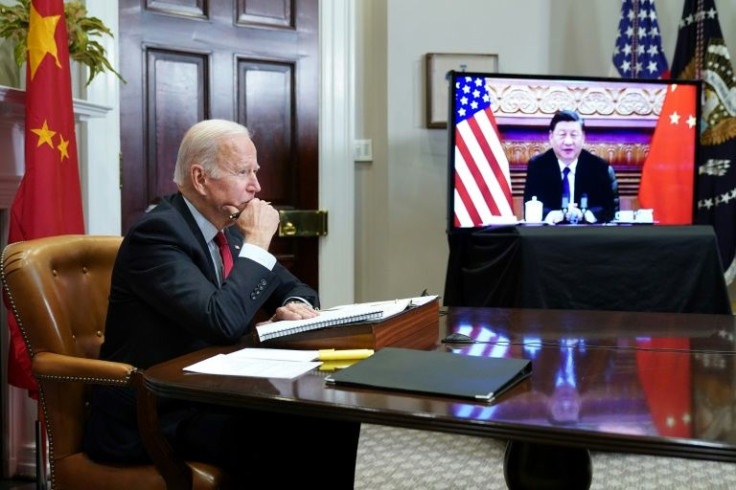Rising China Forces Reality Check: Top Dem Calls For 'Humble Washington' In A Multipolar World
KEY POINTS
- Rep. Smith said the U.S. should "keep the door open with Beijing"
- He agreed that China’s going to be a "big powerful country"
- The meet also witnessed a war-game exercise on Taiwan issue
As relations between the two global powers, the U.S. and China, worsen over the Taiwan issue, a democratic representative has suggested that Washington "try and keep the door open with Beijing."
Rep. Adam Smith, D-Wash, who is also the chairman of the House Armed Services Committee, added that the U.S. needs to come to terms with "a multipolar world in which a more humble Washington convinces rather than pressures allies" if it hoped to counter China and Russia. He was speaking at the Centre for a New American Security (CNAS) conference.
"If we can find a way to get along with China, to get China to recognize that it’s not a zero-sum game, they’re hung up on this notion that they’re going to bury us. We’re not going anywhere. And neither is China. China’s going to be a big powerful country. The world is in fact big enough for the both of us, and we need to look for opportunities to try and convince them of that," Smith was quoted by South China Morning Post.
Stressing the importance of diplomacy, Smith added: "At the end of the day, what will you do if China attacks Taiwan, nobody knows. And you’re not going to know until it happens. This is where the diplomacy piece of it comes out. We have to get these countries on our side."
Meanwhile, a separate panel at the CNAS witnessed lawmakers, former military officials, and China's think tanks discussing a war-game exercise held recently to identify the potential invasion of Taiwan and the response of the U.S.
The war game was set in 2027 and simulated a situation wherein a hard-line pro-independence government assumes power in Taipei. This leads to China amassing troops near the island and the U.S. bracing for a Chinese invasion.
The games visualized a scenario wherein China launched a pre-emptive attack on Guam, Japan and the Philippines and an assault on Taiwan. The U.S. countered by attacking China’s ships and supply lines, following which a cornered China used a nuclear weapon near Hawaii, meant to serve as a warning of China’s will to fight at all costs.
"What kept occurring to me with this tabletop exercise was how quickly things kept escalating despite efforts to de-escalate," said Representative Mikie Sherrill, a Democrat from New Jersey, who played the U.S. side. "Certainly the nuclear attack was completely surprising," he said.
The war game exercise was played out on several other assumptions, including U.S. investments in long-range missiles, Taiwan's focus on drones and lessons from Ukraine's defense.
Another significant assumption was that China would learn from Russia's mistakes and commit huge numbers of troops from the start and strike fast, rather than waiting on the border, as Moscow did.

© Copyright IBTimes 2025. All rights reserved.





















